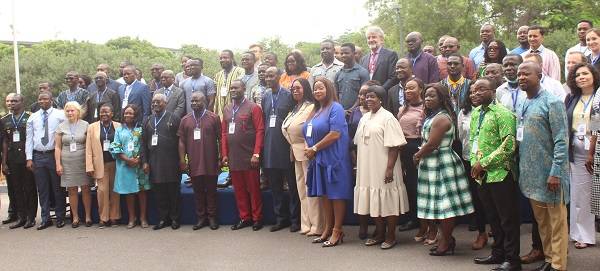
Beginning next year, the computation of the country’s Gross Domestic Product (GDP), the value of goods and services, will incorporate data on the country’s natural resources.
This will include estimates on the value and cost of harnessing the country’s natural resources.
The Government Statistician, Professor Samuel K. Annim, disclosed this during the maiden High-Level forum on Natural Capital Accounting for sustainable development.
The day’s programme was organised by the Environmental Protection Agency (EPA) with support from the Ministry of Environment, Science, Technology and Innovation, Ministry of Finance, Ghana Statistical Service and the National Development Planning Commission.
It was under the National Capital Accounting (NCA) programme being supported by the World Bank Global Programme on Sustainability (GPS) in partnership with the United Nations Statistics Division, which enjoins Ghana to incorporate NCA in the computation of its GDP.
The forum was to showcase preliminary results from Ghana’s NCA work including Land Account, Ecosystem Account, and discuss the policy implications with policymakers and other relevant stakeholders.
It was attended by representatives of academic, civil society organisations and various government agencies such as the Forestry Commission, Ghana Statistical Service, and Ministry of Finance.
Prof. Annim said the NCA would allow the GSS to quantify and measure the value of natural resources and ecosystems in economic terms, provide the framework for comprehensively assessing the contributions of natural capital to Ghana’s economy, and help in making informed policy decisions related to sustainable development.
He said Ghana was at level three and the only country in West Africa which was implanting the System of Environmental-Economic Account (SEEA) to assess the contribution of natural capital to Ghana’s socio-economic development.
“The implementation of SEEA and NCA in Ghana does not mean that the System of National Accounts has been discarded, but both frameworks will complement each other,” Prof. Annim stated.
The Deputy Minister of Finance, John Ampontuah Kumah, said NCA would provide a framework to quantify and integrate the value of ecosystems and the services they provide into the country’s economic system.
“The adoption of the NCA is necessary because although substantial efforts have been made in the management of the environment and natural resources at the national, sectorial, and local levels, natural capital consideration have not been adequately incorporated into the existing national income accounting framework, such as the SNA and GDP,” he stated.
Mr Kumah said the path toward integrating NCA into the financial system would be without challenges, stressing that “We must address data gaps, develop robust methodologies, and build institutional capacities to ensure the accuracy and reliability of our natural capital assessments.”
The Minister of Environment, Science, Technology and Innovation, Dr Kwaku Afriyie, in remarks made on his behalf, said nature served as the bedrock for numerous economic activities and the country’s abundant natural resources and biodiversity made up its natural capital.
“By implementing NCA, we gain access to a comprehensive database that enables us to model potential scenarios for changes in the ecosystem integrity,” and commended the World Bank and the United Nations Statistics Division for supporting the NCA programme.
The Executive Director of the Environmental Protection Agency (EPA), Dr Henry Kwabena Kokofu, said the NCA had as part of the process to establish Environmental Data Management System to allow for the centralised storage and management of environmental data on for instance, air and water.
BY KINGSLEY ASARE







